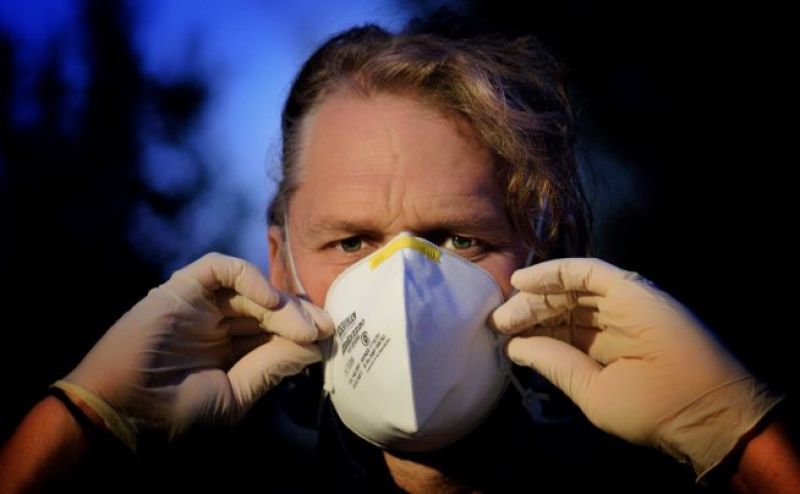
A reputable school in America exposed the negative effects of using facemasks, including health hazards and inability to protect against COVID-19.
The study released by Baruch Vainshelboim of Stanford University (SU), published by the National Center for Biotechnology Information, revealed that facemasks are ineffective in blocking the spread of COVID-19 and are actually harmful to human health.
Titled "Facemasks in the COVID-19 era: A health hypothesis," the study stated that efficacy of facemasks does not have adequate scientific evidence but instead, wearing these can have negative psychological, physiological and health effects.
The physical properties of facemasks are ineffective to block viral particles due to their difference in scales. The SARS-CoV-2 was found to be 1,000 times smaller than the facemasks' thread diameter. Thus, the virus can easily pass through any facemask.
Filtration rates of facemasks are also poor. Non-surgical masks, such as cotton-gauze woven mask is only 0.7% while cotton sweater material has 28% filtration rate. On the other hand, surgical and N95 medical facemasks have 15% and 58% filtration rates, respectively.
The study also reiterated the World Health Organization's (WHO) earlier advice that wearing facemasks is not necessary, stating that there is "no evidence available on its usefulness to protect non-sick persons."
The organization would later publicize the use of fabric-made facemasks to prevent "the infected wearer transmitting the virus to others and/or to offer protection to the healthy wearer against infection." But it also stated that wearing these masks should only be considered for infected persons and not by those that are asymptomatic, due to their breathability issue, lower filtration and overall performance.
WHO's recommendation on facemask usage was supported by the Center for Disease Control and Prevention. Further, the clinical scientists of Australia's Department of Infectious Diseases and Microbiology advised against the use of facemasks for health workers, contending that there is no justification for such but only compromises the "normal caring relationship" between medical staff and patients.
The study also enumerated numerous adverse physiological and psychological effects of wearing facemasks. These include "hypoxia, hypercapnia, shortness of breath, increased acidity and toxicity, activation of fear and stress response, rise in stress hormones, immunosuppression, fatigue, headaches, decline in cognitive performance, predisposition for viral and infectious illnesses, chronic stress, anxiety and depression."
In addition, wearing facemasks has long-term consequences. These include chronic disease development, health deterioration and premature death.
"Governments, policy makers and health organizations should utilize prosper and scientific evidence-based approach with respect to wearing facemasks, when the latter is considered as preventive intervention for public health," the study said in its conclusion.
The NOQ Report said that this facemask issue was shunned by the mainstream media and Big Tech would even suspend accounts of people who posted about it, like what happened to Steve Cortes. Cortes tweeted about SU's findings on facemasks, providing link of the study. But Twitter suspended his account, citing violation of its policy on "spreading misleading and potentially harmful information related to COVID-19".
The Gateway Pundit criticized America's strict measures on wearing facemasks since it does not actually prevent the COVID-19 transmission, calling it "an absolute joke." It said, "America has been led down an insane path of wearing masks that according to this study don't prevent the transmission of COVID-19 and cause more health risk than ever imagined."
Here's the study below, as shared by TGP's Jim Hoft:






























